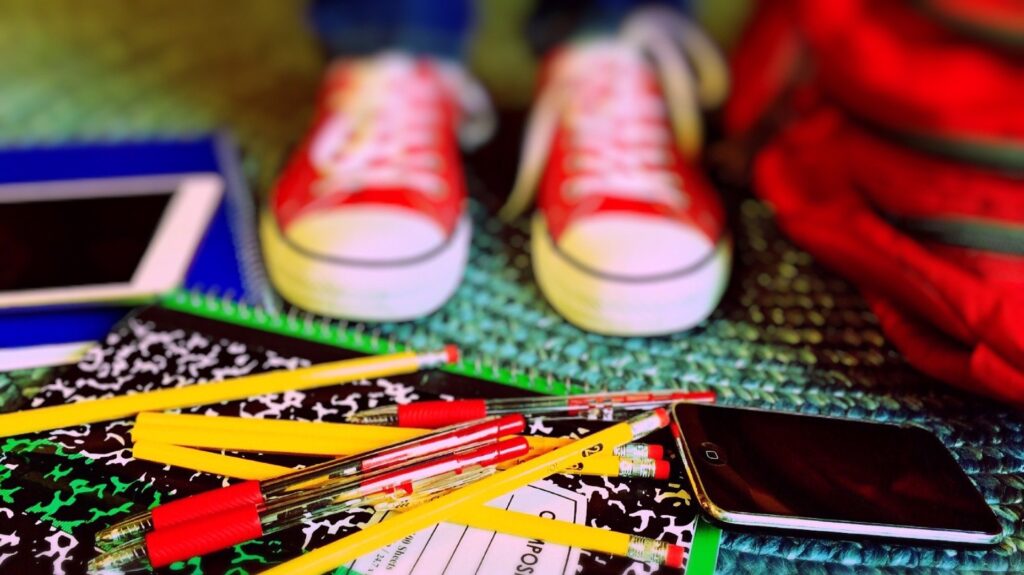
by Amanda Roe, Trauma therapist & Mind coach
As children return to school, many parents, children and teachers are anxious about what to expect in the coming weeks.
It is normal to feel anxious about unknown situations, however it is important to be aware that how we feel about a situation can also influence how children feel about it.
When faced with an unknown situation, focus on the things that you know and the things within your control. Schools are doing their best to reduce the risk of any spread of infections. Bus Eireann and schools are making contact with parents to make them aware of new policy and requirements to minimise risk. It is important to read through these policies and then to sit down with your children and talk through the information so they are informed and know what to expect.
In the future, primary school children (with the exception of children who for medical or special educational needs reasons can not) may be asked to wear a facemask or face covering. You can make this fun by letting your child choose his or her own mask. Having a spare one will mean less stress when the first one is in the wash.
Talk to your children about how they are feeling about going back to school. Ask how they are feeling about masks and hand cleaning being mandatory. If they have asthma or do not like having their face covered find out if they can use a visor. Ask your child if having a practice school day where you both wear a face covering would be helpful. And then most importantly listen to their reply.
Children are very good at problem solving when adults have the time to listen. Help children to find answers to their concerns by asking them “How do you think we can make this easier for you and other children?”
If they are not sure you can give them an example by saying “if it was me I might…” (Give them an example of what you might do) then ask them what they think? Could that work for you?
Remember to also have conversations around what they are looking forward to i.e. seeing their friends again, and the subjects that they enjoy. If your child is still feeling anxious ask them “where do you feel that?” Anxious feelings are most often felt in the tummy and can feel like butterflies or nausea. There are many practical things that parents can do to reduce these feelings.
First ask them “what it will be like when that yucky feeling is gone?” Acupressure is fun and easy to do at home. In Chinese medicine there are acupressure points that bring comfort to the body and the mind. Tapping gently under the eye (see diagram) is good for relieving anxiety in the stomach. Show them where to tap and tap gently with them for 30 seconds, then ask “is that helping the yucky feeling go away?” If it is helping you can repeat this until the feeling is gone.
Giving your child a hug and drawing a figure of eight on your child’s forehead as you hug them can also help them feel better as it calms the mind and stimulates many of our body’s innate relaxation and healing processes. These techniques will work for all ages including adults so try them on yourself.
It is difficult to manage emotions when tired. So support your child to get enough sleep. Aim for nine to 12 hours of sleep per night. As the evenings are still very bright, a blackout blind will help you to re-establish sleep patterns.
In the morning make them a breakfast that contains protein. Protein will give children the energy they need for the school day and provide fuel for their brain. Cereal is high in carbohydrates and sugar and can make anxiety worst so try something like scrambled eggs with bacon or french toast.
Exercise will also help to reduce anxiety; going for a walk after school, playing a fun game of football or encouraging them to bounce on the trampoline will all be helpful.
A lot of adults feel that children will grow out of anxiety, but in my experience it might take many years and the support of a therapist to do so. Why wait? Imagine how much more fun they could have had free of anxiety and worry. If you notice your child is anxious, constantly worried, easily startled or developing everyday fears it is time to get help. There are lots of interventions that parents can learn to support recovery at home. But please remember if you are a teacher or parent dealing with your own anxiety or worries, resolving these issues first will reduce the emotional affect on others around you, and leave you in a better position to support those you are caring for.
Emotional problems, trauma, addiction and fear impact on our behaviour, health, weight and hormones. I support adults and children to take back control of their mental, physical and emotional health through a range of therapies, which include dietary advice, hypnotherapy and acupuncture. If you are curious please do get in touch, I am looking forward to hearing from you.
Amanda 087 6331898 / amanda@marketstclinic.com


